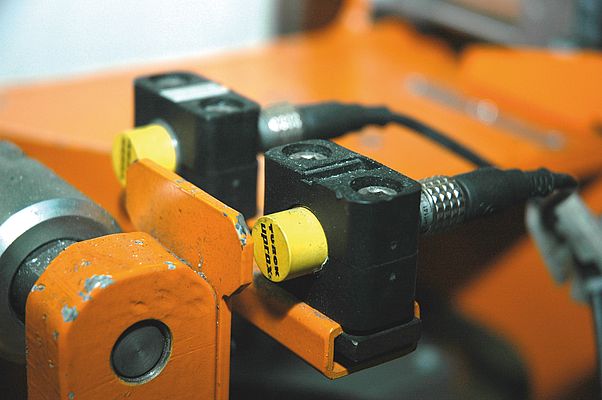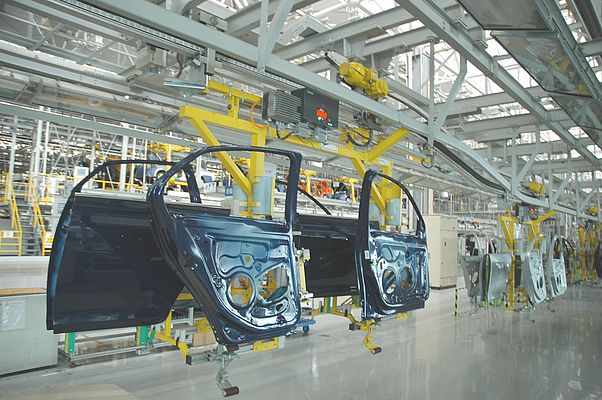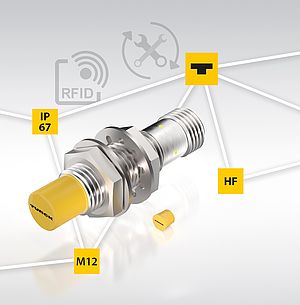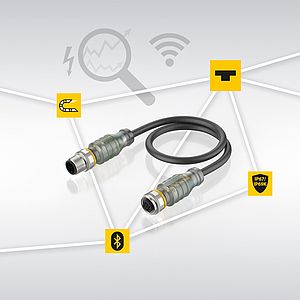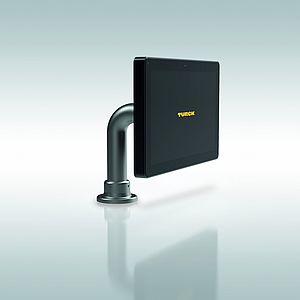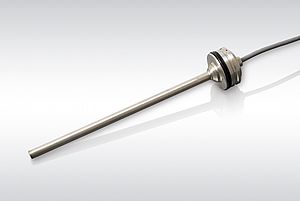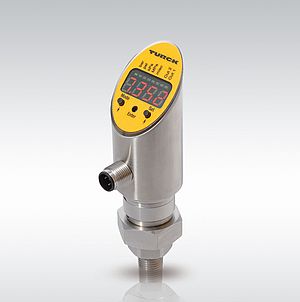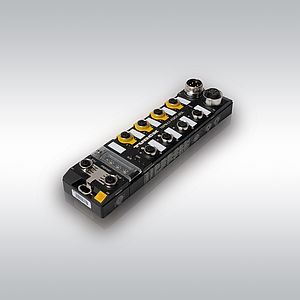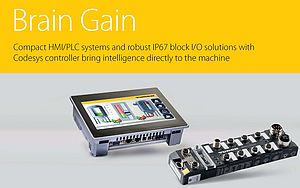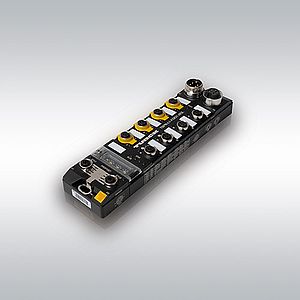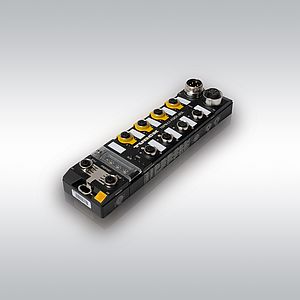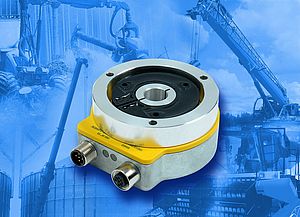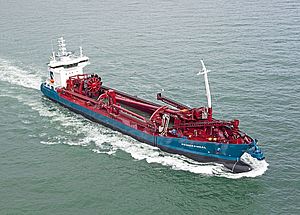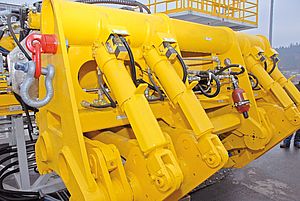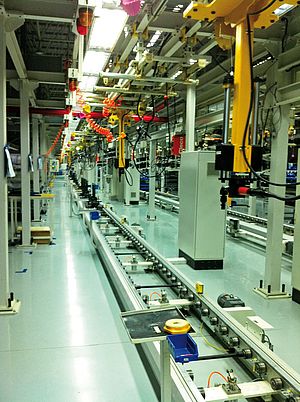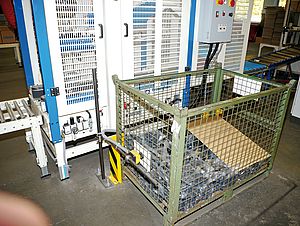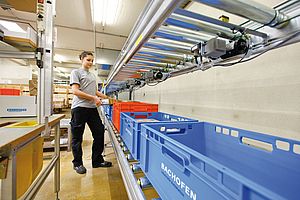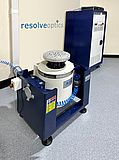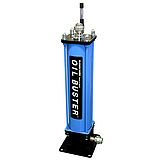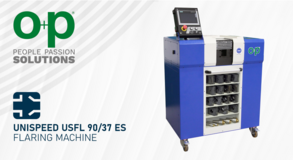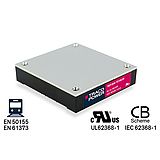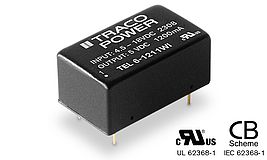Steel body or aluminum frame? Magnesium interior or plastic interior? Wood trim or carbon accents? The selection of the materials used in automobile manufacturing is as great today as the expectations of the automobile purchasers. In the end, the car has become much more than a simple mode of transportation for most customers - it has become a status symbol that should be equally high value as well as individual.
In order to be able to meet the growing expectations of customers and simultaneously ensure efficient production, the automobile production lines have to be constantly modified, remodeled or expanded. New materials, improved production processes, and expanded automation potential are also putting higher demands on the automation solutions already in use. Due to the diversity of the materials used, the production steps performed, and the machines used, it applies, in the end, that the efficiency of a production line stands and falls with the plant capacity and thereby with the flexibility and reliability of the automation components used.
That is why, in order to ensure the efficient production of high quality automobiles like VW‘s new Sagitar or the Magotan vehicle lines, FAW-VW Automobile Co., Ltd. – a joint venture between the Chinese governmentowned First Automotive Works, Germany‘s Volkswagen AG, Audi AG and Volkswagen Automobile (China) Investment Co., Ltd. – relies on sensor technology from Turck. In its production lines in Changchun in northeast China, FAW-VW is producing sedans based on European models like the Golf, Jetta, Bora or Passat. Founded in 1991, FAW-VW has become one of the major Chinese automobile manufacturers in the last 17 years, with a plant value of approximately EUR 3 billion and a production capacity of 1,000 manufactured cars per day as well as additional capacities for vehicle and parts export.
High demands placed on sensors
During the course of such breathtakingly rapid development in the Chinese automobile industry, customer demands have risen with regard to quality, functionality, and efficiency. This has led FAW-VW – like all automobile manufacturers in the end - having to use new materials and technologies in order to facilitate the flexible production of different vehicle types and models at one location. Correspondingly high were the automobile manufacturer‘s requirements with regard to the sensor technology used. In order to be able to detect workpiece positions in the various stages of automated production, such as stamping, painting, welding, and final assembly, the sensors have to be robust, versatile, and cost-efficient – requirements that the Factor 1 sensors from the uprox+ product line fully meet.
Factor 1 on all metals
Thanks to multi-spule technology, the sensors designed to meet the IP68 degree of protection detect all metals without reduction factor - regardless of whether it is iron, stainless steel, copper, aluminum or brass. Not only that, in comparison to conventional ferrite core sensors, they made it possible for FAW-VW to detect all metals used in the production lines with considerably higher switching distances up to 50 mm (FAW-VW uses the Ni50U-CK40 series) – thus offering high degrees of freedom for installation and area of application. A further advantage of the Factor 1 sensors that are sold by Turck (Tianjin) Sensor Co., Ltd. (TTS) in China is the fact that with the few sensor types that are suitable for many applications within the production line, the automobile manufacturer was able to set up simple and cost-efficient warehousing.
One of the hardest areas of application in the FAW-VW plants is welding assembly. In the overall production line, the individual parts of the various sedan models run through up to 5,000 spot welding steps. For monitoring the automated motion sequences, FAW-VW relies on the sensors from the MT series. Mounted on the robot arms, the special sensors coated with teflon continuously check the position of the robotics in relation to the workpieces – and thus guarantees not only spot-precise welding processes, but also error-free flow in the assembly process. The special challenge in this application: In welding assembly, not only high switching distances are required in order to be able to detect the position of the workpieces early on and, if necessary, correct them, but also excellent shielding against external environmental conditions. Because uprox+ sensors do not contain ferrite core, they are equally insensitive to strong magnetic fields, like those that develop during the welding process, as they are to flying sparks or mechanical wear. The flush (or over-flush) and non-flush installable Factor 1 sensors thus guarantee the highest reliability.
Installation at any angle
For recording the position on cross-bars in final assembly and in the paint shops, FAWVW relies on uprox+ sensors from the QV40 series, which can reliably detect the presence or absence of metals up to a distance of 50 mm. However, the square-shaped sensors that are simple and uncomplicated to install via a mounting clamp perform their services reliably not only with regard to determining the position on the cross-bars, but they can also be used literally in any angle of the production line. Because their active surface can be positioned in five different directions manually without tools, the QV40 sensors can be comfortably and quikkly adapted to the respective applications and environmental conditions. Like the MT series, the QV40 sensors thus allowed production engineers at FAW-VW to cover detection applications in the entire production line using a low number of product types.
Author: Oliver Marks is the director product management sensors at Turck in Muelheim, Germany


